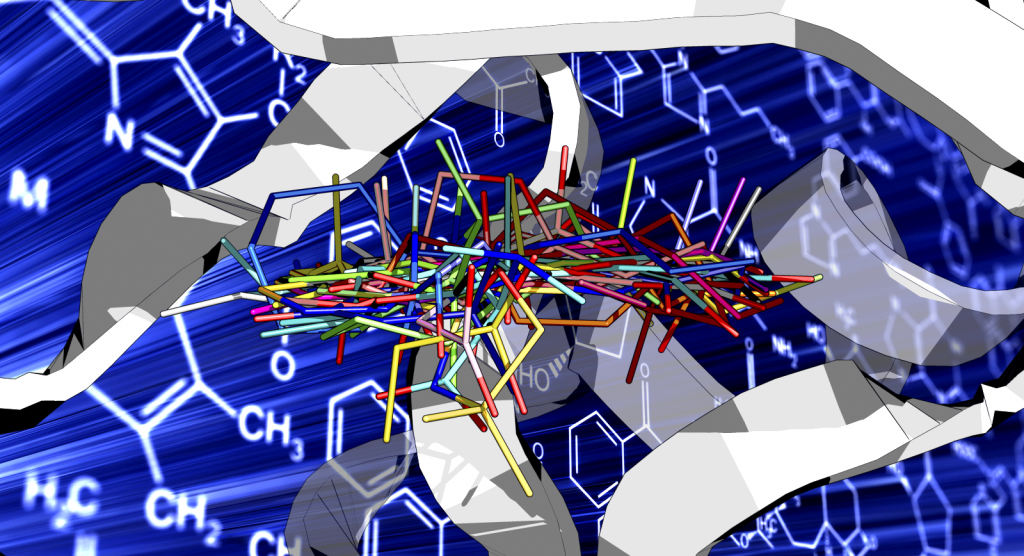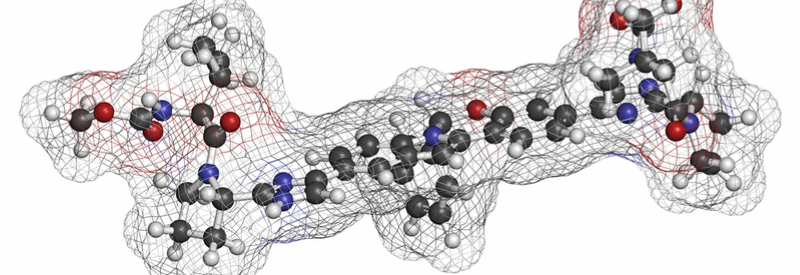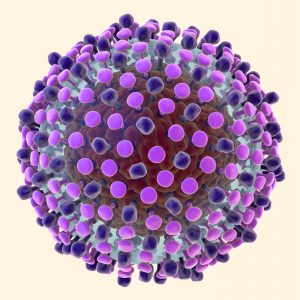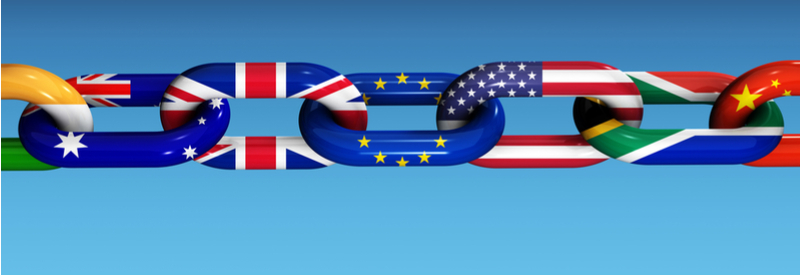Newsletter Signup - Under Article / In Page
"*" indicates required fields
The demand for contract research organizations (CROs) has been increasing steadily worldwide. With more and more clinical development programs being launched and a heightened demand for pharmaceutical products, companies in the biotechnology, pharmaceutical and medical technology industries are frequently deciding to outsource R&D processes to CROs.
To give you an idea in numbers: In 2014, the market value of all global CROs combined amounted to $34bn (approx €29bn). By 2020, it is expected to reach a record high of $59bn (approx. €50bn).


As a consequence of this growth, CROs are reaching out to markets across borders, moving into other countries and continents. The international cooperation between Asian CROs and European biotech and pharma companies, for instance, perfectly reflects this blooming growth of the global CRO market.
We have met with Steve Yang, Ph.D. Executive Vice President, Chief Business Officer and Chief Strategy Officer of the Chinese CRO WuXi Apptec, and Michael Schaeffer, Co-founder and Managing Director of the German biotech company Crelux, which was acquired by WuXi Apptec in 2016.
Together we spoke about the trend of Asian providers moving into the European biotech market, the prejudices and challenges they face, the differences between Asia-Europe and Asia-US relationships and the role cultures play in all of this.
Steve, why are Asian providers turning towards the European biotech market? What is this trend and why is it happening now?
There are a number of reasons why Asian CROs, and especially Chinese CROs, are expanding into Europe. Different groups of service providers, such as WuXi AppTec, have grown to become fully integrated into the life sciences industry. This results in their need to grow and develop globally.

The problem is that the growth within China is not as easy as it used to be. This means that large research oriented CROs in China have built the majority of their customer base in the United States. As their coverage of the US has become more comprehensive, they are now looking for markets that are less well covered. A good portion of the global pharmaceutical R&D budget is spent in Europe and consequently, it has become an important new frontier for Chinese CROs.
Also, European pharmaceutical companies, as well as CROs have accumulated deep expertise and talent in many scientific disciplines. Asian companies, on the other hand, often find themselves in a bottleneck situation when hunting for talented workers.

It makes sense that in China, for example, most companies are clustered into the same regions, resulting in a high competition for talents and technologies. Europe therefore provides a solid foundation for the growth of the Chinese CRO market in enabling the acquisition of talents and allowing for M&A processes to access new capabilities.
Lastly, as pharmaceutical R&D becomes increasingly networked and connected, the leading CRO companies in China and Asia in general, have built management systems and processes that allow them to organize and manage a network of sites around the globe, including in Europe.
Michael, can you tell us about the story of Crelux and how WuXi AppTec acquired it?

Crelux was founded by three experienced biotech entrepreneurs in 2005: Martin Ried, Ismail Moarefi, and myself. It basically started out like many others: In a garage with a handful of people. Soon it evolved into a service provider specializing in X-ray crystallography, biophysical assays, fragment screening, and providing clients with protein structures and target information.
At an early stage, Crelux made a living with only a few client projects, and one of the first clients we had at the time was Richard Soll when he was still working as the CSO of TargeGen. After he approached us and we worked with him, TargeGen was acquired by Sanofi in 2010. He then went to WuXi AppTec in China and we kept in touch with him, met at conferences and so on.
Every time we saw each other, we agreed on working together at some point. Then, about two years ago, Richard called me and said ‘it’s now or never’. He knew that WuXi Apptec is strong in chemistry and biology services for drug discovery, whereas Crelux focuses more on the structural analysis of molecules. It was a perfect fit.

What does it mean for a small company to be acquired by a large provider? Do you think it makes a difference whether that company is from China, the US or Europe?
At Crelux we were always looking for partners with a chemistry-side of things, enabling us to offer more comprehensive services. We receive small molecule compounds from companies and solve their complex structures for them. At some point, we discovered that most of the small molecules we received were actually developed by WuXi AppTec, so we knew their production quality to be excellent.
Being acquired by WuXi AppTec means that we are now doubling our revenues within the year. We have also gained access to a larger group of business development people who sell our services to Japan, to the US and to other European companies as well.

We have learnt that everything is done with high speed at WuXi AppTec. There is a surprisingly fast turnaround, which reminds us of our entrepreneurial approach and background. In old systems, people often meticulously try to avoid any sort of mistake and act highly risk-averse, but at WuXi AppTec it’s more of a ‘let’s do it’ state-of-mind.
I think it can make a difference whether a small company is acquired by an Asian or American or European company. If you look at the Chinese culture, for example, people are rather risk averse, and that is often reflected in the management of companies.
In the case of WuXi AppTec, the majority of the management board lived, studied and worked in the US for quite some time. This means that both the features of the Chinese culture, as well as the American one are integrated into the company. It’s basically a perfect mixture of caution and adventurous spirit.

This made us feel comfortable with the acquisition process as well. You hear horror stories, but WuXi AppTec approached us very professionally. The Crelux team and their achievements are respected and the company is very open and trusting towards Crelux’s ideas and work.
Steve and Michael, the expansion of an Asian company into the European market is bound to come with some challenges. What are they?
Michael: In Europe it’s a completely different situation than in the US, where the whole community is already used to living and working with Asian people, as neighbours, colleagues, friends. The American market especially, is very used to collaborating with Chinese companies, or Asian companies in general.
The European market, on the other hand, has long seen China as a competitor with cheap production and low quality. Of course this is not true, but it’s a stereotype that is rooted within the European community.

Steve: A similar sentiment can be found in many Chinese people, so on both sides we have stereotypes and risk-averse behaviour. Many Chinese worry about Europe, as they know less about it than the US. The geographical distance and language barriers have had a great influence on business between the two continents.
Having said this, the internet and other modern communication tools and technologies have greatly decreased the distance and lowered the barrier for communication between them, which is why the biotech business is taking a turn.
The main challenges Asian companies fight in Europe are therefore prejudices. For SMEs branding can be a problem too, as it is harder for a small company to become known. Large companies, such as WuXi AppTec have an advantage there, because their good reputation has already spread to the European life sciences community.
On that note: the relationship between Asian and US life sciences companies is a very different one to that between European and Asian companies. Can you comment on that in more detail, Steve?

American and Asian companies have a long history of collaborations to share. Consequently, there are more success stories around than between European and Asian companies.
For example, WuXi AppTec has a long-standing partnership with US Pharmaceutical company Merck. Nine years ago, WuXi supported Merck in delivering multiple preclinical candidates in the Hepatitis C virus area.
One of these candidates, Elbasvir, has successfully completed clinical development and was approved by the FDA in January 2016. This year, the team that invented Elbasvir, received the Heroes of Chemistry Award from the American Chemistry Society. Among this group three are WuXi AppTec employees, including two young scientists based in China.

Elbasvir is an NS5A inhibitor, which means that it prevents the replication of the Hepatitis C virus. This is a big deal, but in Europe people are not aware that WuXi AppTec scientists contributed to the invention of this drug.
Next to Elbasvir, WuXi AppTec also synthesized Sofosbuvir, which is included in the Gilead products Sovaldi and Harvoni. Few people know that this drug was actually synthesized and made by WuXi for a biotech company called Pharmasset, which was acquired by Gilead because of that drug.
Sofosbuvir is quite expensive, sold at around $84,000 (€71,000) in America, but is a tremendous breakthrough: A few weeks of therapy do not only treat Hepatitis C, but completely cure 90% of patients from the infection.
How do you both see this trend of Asian companies in Europe developing in the future? Will the cooperation between global companies become more far-reaching?

Steve: When we’re talking about CRO life sciences companies then yes, there is definitely an expansion of Chinese CROs towards Europe and the US. WuXi AppTec is the best example for that: It was originally called WuXi PharmaTech, which then acquired an American CRO called AppTec. And now WuXi AppTec itself is expanding into Europe.
During the past few years, WuXi AppTec has made annual overseas acquisitions to expand its platform. The majority of these acquisitions are done overseas, especially in US.
Michael: In future there will be more M&A processes of Chinese CROs with American or European companies. The cooperation between companies will also increase. The last two development plans in China have reflected a strong drive to evolve the biotech and life sciences industry there. It will turn the tables and become a great opportunity for European CROs to work with Chinese companies in China.
Want to learn more about Crelux and its collaboration with WuXi Apptec? Yes? Then check out their website!
Images via Alex_Po, Kateryna Kon, molekuul_be, NESPIX, Rawpixel.com, blackdogvfx, chombosan, fatmawati achmad zaenur, niroworld, Unuchko Veronika/Shutterstock and LinkedIn and Crelux






